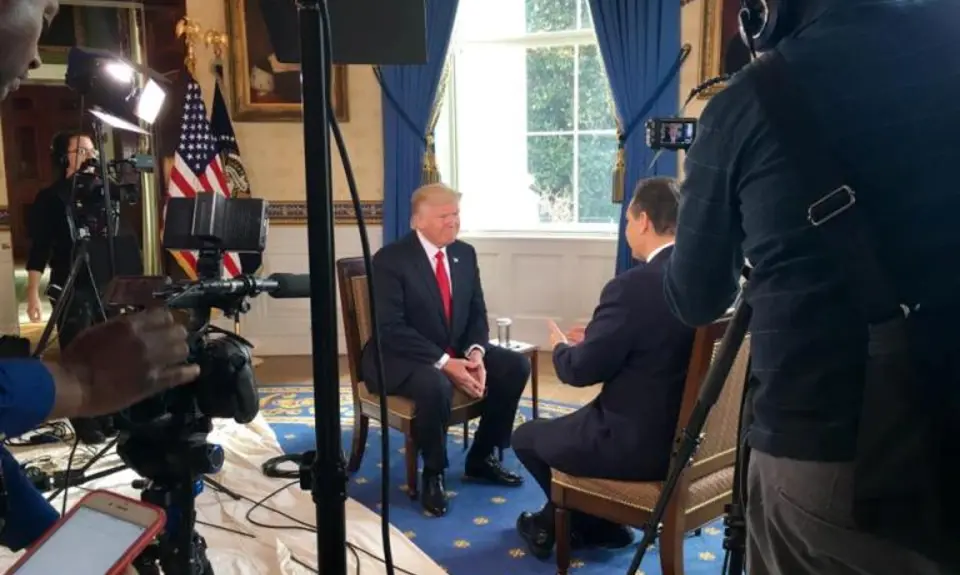In an interview late last week with the Christian Broadcasting Network’s David Brody, President Trump discussed the process the president has been using to determine who his Supreme Court nominee will be. It is hardly a surprise that this was of interest to CBN viewers. After all, one of the main reasons the religious right rallied to Trump was his promise not to nominate anyone who didn’t appear on a list of extreme right figures drawn up by extreme right organizations.
President Trump assured Brody that the religious right would be happy with his choice. But he did far more than that. He said:
“I think evangelicals, Christians will love my pick. And will be represented very fairly.”
Evangelicals will be represented by a justice of the Supreme Court?
That turns the idea of an independent judiciary on its head. The Constitution created two elected branches of federal government to represent the people. And it created the third branch, the judiciary, to be wholly separated from politics. Judges are supposed to interpret the law. Chief Justice John Roberts’ baseball analogy during his confirmation hearing was quite memorable: He likened the role of the judge to that of an umpire, calling balls and strikes.
While this analogy has many faults, it does correctly make clear that the judge—like an umpire—is supposed to make rulings as a completely disinterested figure. Can you imagine the rioting that would have broken out in Chicago had the World Series umpire said that he “represented” the Cleveland Indians?
In our constitutional system, constituency groups are not “represented” by judges. Any jurist who said they saw their role in that way would likely be harshly condemned by their fellow judges and their colleagues in the bar. No party in their court could be sure the judge was taking an independent and dispassionate view of the legal questions before them, because they see their job as “representing” certain parties.
Representing parties is the job of lawyers. Representing people is the job of elected officials. Our nation’s liberty requires an independent judiciary that makes wise decisions based on the law, not based on representing a particular group.
And while Trump’s description of his soon-to-be-announced nominee is unacceptable for any federal judge at any level, it is particularly dangerous in the context of the Supreme Court. The nine justices interpret the Constitution and our nation’s laws in ways that profoundly affect everyone. The Supreme Court can declare segregated schools unconstitutional, protect people’s right to make private decisions about contraception or abortion, and lift restrictions that prevented interracial and same-sex couples from marrying. And as we have painfully learned in the Roberts-Alito era, the Court can also distort laws prohibiting job discrimination, open our electoral campaign to unlimited corporate money, facilitate voter suppression, and transform religious liberty from a shield to protect free exercise into a sword to harm others.
That last one is a priority for the religious right, which is using specious claims of religious liberty to—among other things—deprive LGBTQ people of their legal rights and to prevent women from obtaining healthcare the law guarantees them.
And Donald Trump has assured them that he is selecting a Supreme Court nominee who will “represent” them on the high court.
The president is scheduled to tell the nation who his nominee is this week. But he has already told us something very important about them: Whoever it is, they are disqualified to sit on the Supreme Court.
